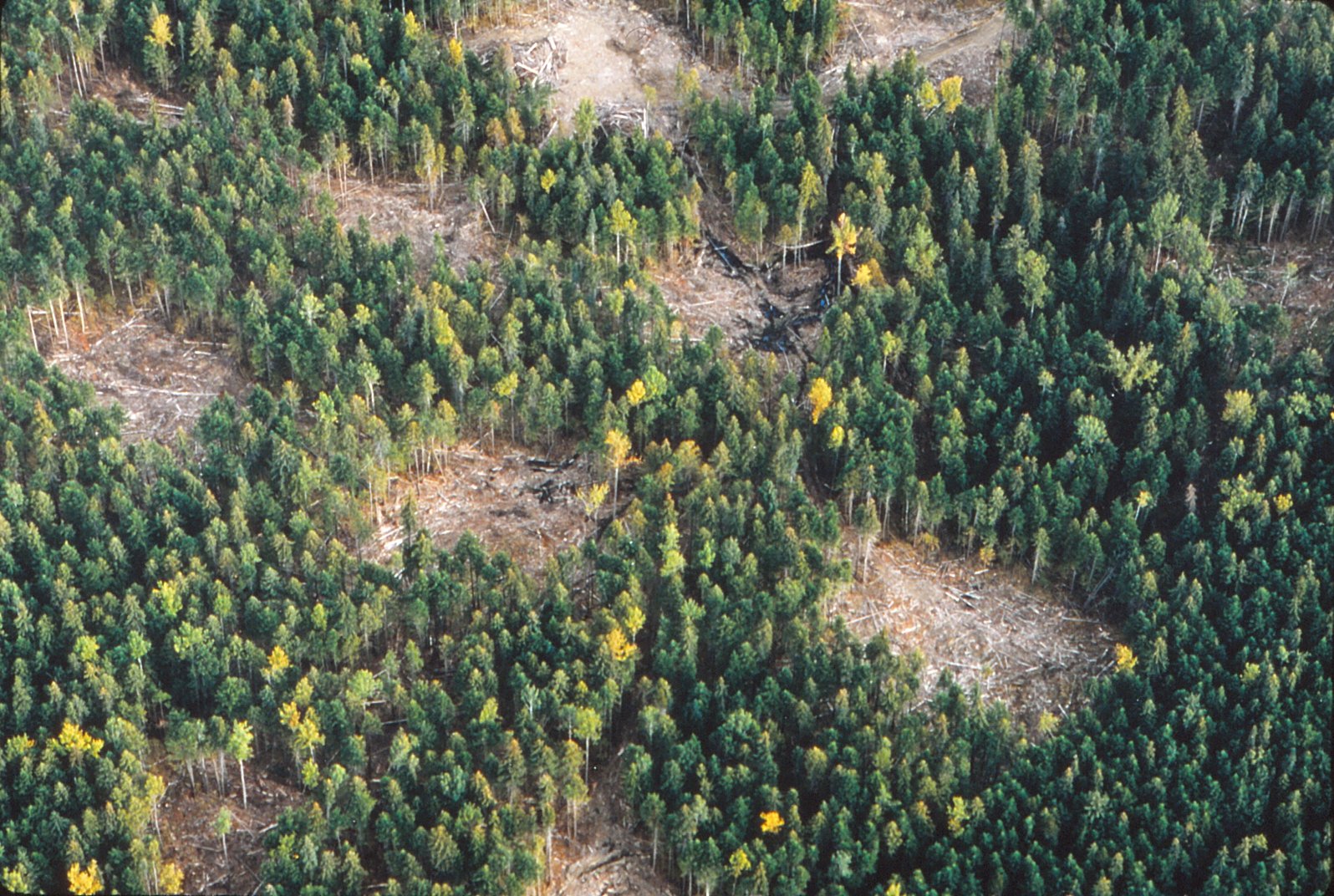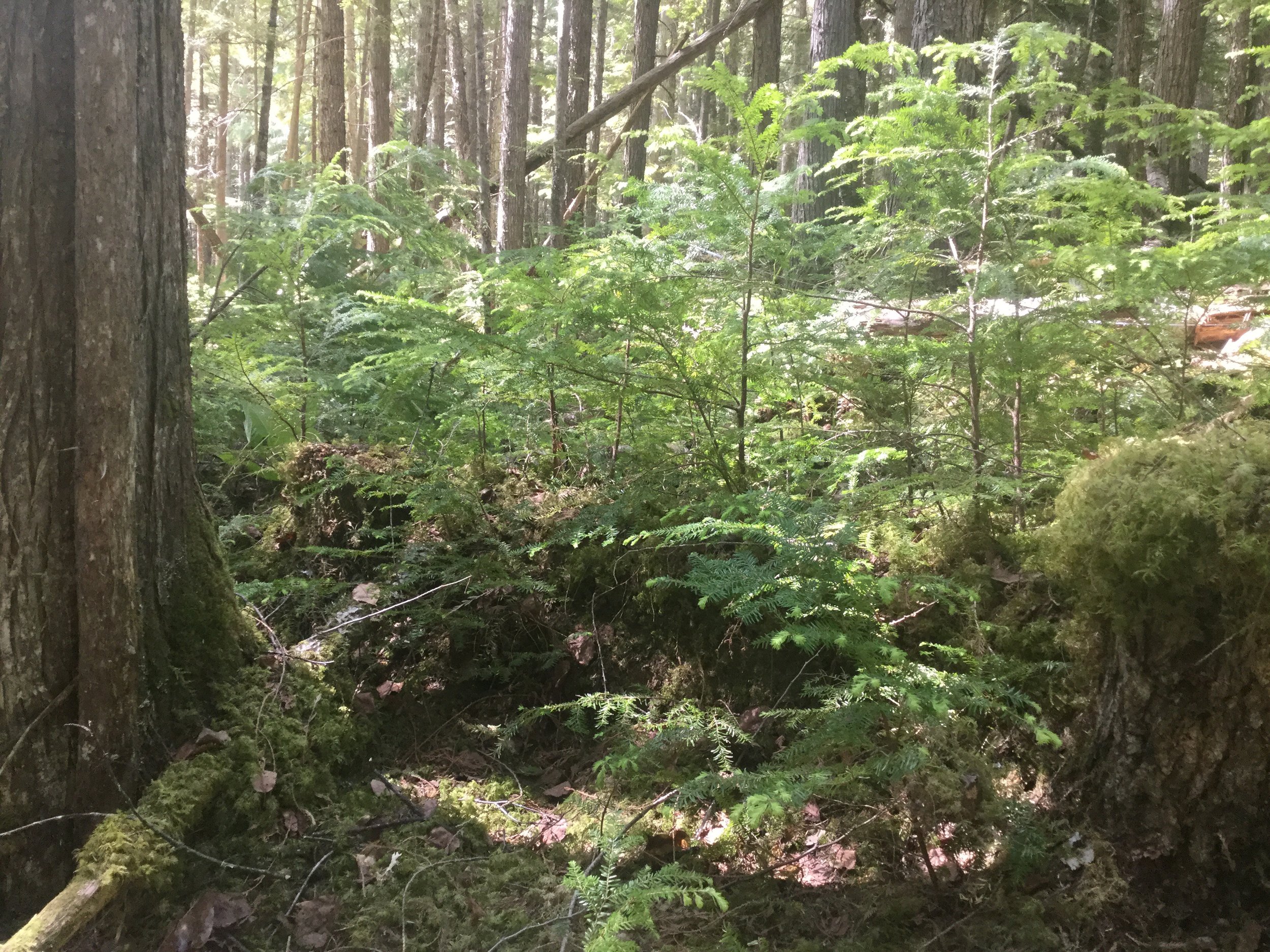
Forest Stand Dynamics Research and Modelling
We study forests to understand how disturbance and forest management impact function and dynamics, ecological resilience, and ecosystem values and services
What is Forest Stand Dynamics?
Forest ecosystems are fundamentally a network of interacting elements, which in turn, affect tree recruitment, growth, and mortality. The interactions among individual trees and their spatially heterogeneous environment are inherently local in nature acting at a neighbourhood scale over restricted distances.
Forests exhibit elements of quasi-chaotic and uncertain behaviours as a result of interactions among many non-linear relationships. Development of forests include many components of randomness (e.g., seed dispersal, neighbourhood composition, windstorms), but forests do not develop randomly. Complex behaviour is best represented using a "bottom-up" approach to modeling. Each hierarchical element is modeled as a discrete agent or object state, where each entity has functions that are characterized by relationships described by rules (or equations) and constant values or variables.
What is SORTIE?
SORTIE is an individual tree, spatially explicit model of forest dynamics. Trees in the forest are modeled individually, not as averages or spatial aggregates. Each individual has a location in space, and that location affects the processes (recruitment, growth, death) of the individual.

Context matters
— Dr. Dave Coates






